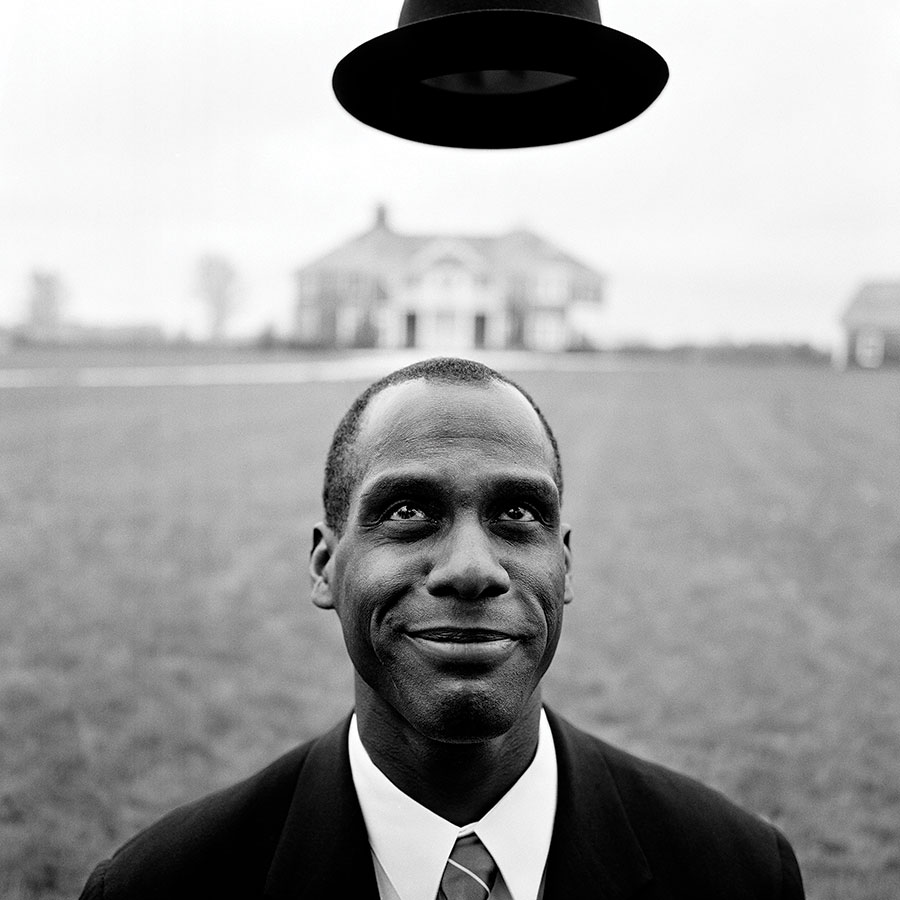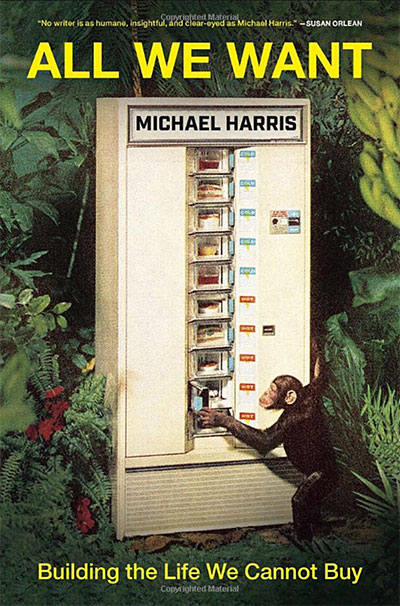A Life’s Measure: 3 Ways to Find Meaning and Purpose in Retirement

As baby boomers retire and redefine how they spend their time and their money, Michael Harris says they will find purpose in small pleasures — and help save the planet. Photo: Rodney Smith/Trunk Archive
Over the last several years, I’ve been writing All We Want: Building the Life We Cannot Buy, about the damage consumer culture does to ourselves and to the planet. But, all the while, I was still enmeshed in the very culture I was critiquing. I’d sit at my desk to compose an argument against shopping and then step away to buy groceries, pay the electric bill, or pick up some new jeans. I have been living in a state that some call “cognitive dissonance.” But I’ll just call it hypocrisy.
We all have to live with a certain amount of hypocrisy these days. No matter how much we care about climate change, we still must, to some degree, live our capitalist, carbon-spewing lives. Icebergs four times the size of Manhattan calve off an Antarctic glacier; then we drive to the mall to get some Christmas shopping done. We read that three billion birds have disappeared from the skies of North America; and then we order duck confit for dinner. That cognitive dissonance grows harder and harder to handle as the gulf between our daily lives and the fate of the planet grows more difficult to bridge.
Are we simply condemned to fiddle while the world burns, then? The necessary changes debated at climate-change events like the United Nations’ COP26 in Glasgow, where world leaders hammer out emissions targets, can feel so massive and abstract that our personal actions seem insignificant. Who cares if I fly to Maui for the weekend? Who cares if I buy organic or recycle? It’s policy and collective action that matter.
And yet. Massive change is upon us — whether we want to be climate warriors or not — and that means we, individually, will have to reimagine “the good life.”
While younger generations are (rightly) celebrated for their climate activism, a generation of baby boomers is pioneering this shift in fascinating ways. Five million Canadian boomers will become senior citizens this decade. And as they retire, those millions will leave the capitalist game. No longer will they be tied to an earning-and-spending rat race. Instead, boomers will increasingly live on fixed or reduced incomes. Many will downsize. Spending habits will evolve to meet a slower pace of life. But will they feel lost, then? Purposeless? More likely, boomers will redefine retirement, just as they’ve redefined every other stage of life.
Temporarily, at the start of the COVID-19 pandemic, we were all forced to cool our consumer jets. Spending levels crashed, saving levels jumped, and we enjoyed a baking renaissance as we were forced to contemplate quieter pastimes from our respective quarantines. But the bit of change in global carbon emissions was short-lived. Clear skies were smeared again as consumption levels heartily rebounded. So much for the ecological benefits of pandemics.
COVID was a speed bump in the consumption lives of most people. But, for those of us entering retirement, the change will be far more profound – and far more lasting. When boomers retire, they aren’t merely looking for sourdough recipes and puzzles to pass the time; retirees have the chance to redefine life’s central meaning and purpose.
While researching my book, I encountered three arenas where that new meaning and purpose can be discovered. And, to my surprise, all three options can come alive during retirement.
Craft
Where consumer culture gives us something finished, Craft offers something coming into being.
A quilt. A canoe. A simple walking stick. The value of making things for ourselves has receded in an age of automation. Machines cycle through material at a blistering pace. And yet handmade items have, for millennia, been at the centre of human lives. We can, with a little time and effort, make things for ourselves again; we can enjoy the aura that materials gain when worked on, the value they accrue when we commit ourselves to some small act of creation. We can build labour back into our lives, even after retirement. After all, to strive for endless leisure would be to miss out on the fullness of experience. Work and leisure are complementary; neither end of the scale should be abandoned.
The Sublime
Where consumer culture offers something you can own, the sublime offers something beyond your grasp.
A visit to the seashore. A walk on a mountain trail. A bit of nature may lower heart rates and cortisol levels, and it can be so much more than a bubble bath. Nature can ravish us, bowl us over and dominate the senses. Taking a dose of the sublime — even by standing beneath the stars and contemplating infinity — can remind us that we’re part of an extraordinary universe. Anxieties fall away as we recall our place among myriad miracles. In our cynical times, an encounter with the sublime can sound like a romantic indulgence. But — particularly for the irreligious among us — the natural world’s wonders can be a balm for our little troubles.

Care
Where consumer culture offers satisfaction, care invites devotion.
A delivered meal. A helping hand. Caring for others can bond us to a lasting and profound community of human concern in a way that the shopping mall never could. All social animals are attentive to each other’s needs and — especially when dementia or some other crisis strikes a loved one — humans learn that we, too, are designed to survive in groups; we survive by sticking together. When we take care of our husbands, our wives, our friends, we have a chance to become our better selves.
These are just a few of the places where life’s worth is measured by doing and not by getting. Once we stop focusing on consumption, these new options appear, offering a richer lived experience. And that’s the great treasure we can all look forward to if we allow the climate crisis to inspire real change: a life fuelled by our fully engaged humanity, and not simply by cheap fossil fuels. In the meantime, retirees are pioneering those possibilities.
Michael Harris is an award-winning Vancouver author of three books.
A version this article appeared in the February/March 2022 issue with the headline “A Life’s Measure,” p. 66.
RELATED:
Independent Living: How to Plan and Budget for Aging in Place
Saving Grace: How Financial Resilience Can Help You Prepare for the Next Economic Shock
